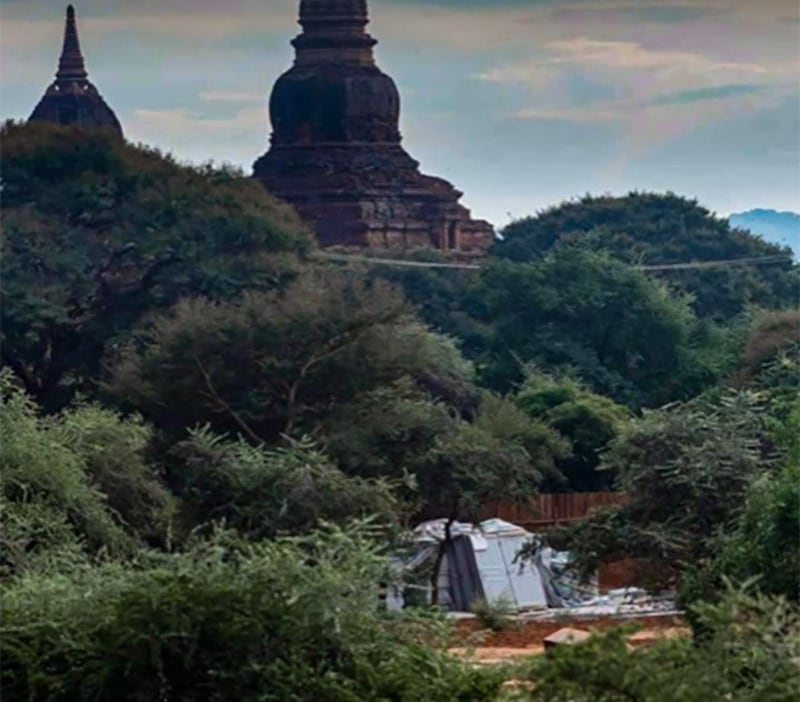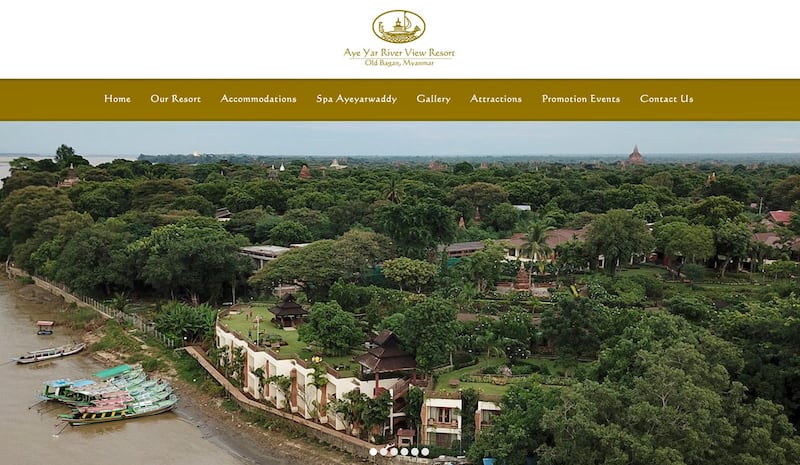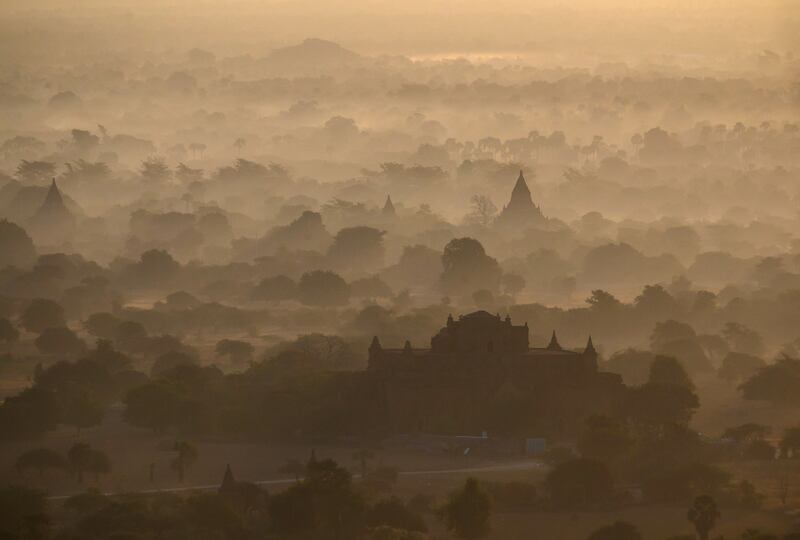When Chinese conservation teams began working on the That Bin Nyu Temple in Myanmar’s ancient city Bagan, local residents noticed something out of place. Less than 300 meters (yards) away, they also began constructing an office.
“We can only see it but we don’t exactly know what they are doing,” one local, who declined to give their name for fear of reprisals, told Radio Free Asia. “A civilian can’t know that much. We just see the maintenance work there.”
In the last two years, much of the oversight in Bagan's preservation has slowly fallen away. Teams from nations like France, South Korea and Japan withdrew after the 2021 coup, allowing China and India to take over the conservation of numerous temples.
That’s raised concern among conservation experts about the quality of the work so far and the practices of the teams conducting it.
Conservationist and Bagan specialist Zay Myo Lin also cited the Chinese team’s office, which is only 30 meters (yards) away from the Pahtothamya Pagoda. He added that this type of construction was not allowed in the last decade, and that a fence and guards now surrounded it.
“By law it’s not allowed to be built. It must be far away from the monuments,” he said. “There’s a guideline like that already set up, but they don’t care.”
Increased construction
Lack of supervision and poor labor quality are not the only causes for concern. After the coup, there has also been an increase in construction projects in the ancient city that are frequently undertaken without heritage impact reports.
“During the transition period, before the NLD [National League of Democracy] government, they allowed some hotels” to be built, said Thet Lwin Toh, a former chairman of the Union of Myanmar Travel Association.
“So that is a heritage site, they remove and some are not allowed to extend their cottages and their building,” he said. “But after the coup, some of the hotels, they extend.”

Under the former NLD administration, guidelines submitted to UNESCO in 2018 would evaluate Bagan’s protected property zone hotels. To maintain the site’s status as a world heritage site, the plan commits to relocating such hotels by 2028.
But instead of being relocated, the city’s Ancient Monuments Zone has become a site for thriving hotel renovation.
The Royal Palace Hotel, owned by Bagan magnate and military crony Myo Min Oo, had room extensions, additional rooms and a swimming pool constructed.
In the city's heritage zone, the Bagan Thande Hotel, Ayar Hotel, Amazing Bagan, and three other hotels with Chinese investors – Anavila, Balone Kyun River Hotel, and Ask My King – all underwent construction.

The junta also began constructing drainage systems last month to handle the yearly flooding affecting pagodas without a proper assessment prior to the project, according to Thu Ya Aung, who formerly served as general secretary of the Myanmar Archeology Association.
“[There’s] the instant negative effects of destroying or loss of archeology strata. The cause of deterioration of pagodas and archeological elements may occur over a span of time in the future,” he told Radio Free Asia.
The management plan submitted to UNESCO by the NLD in 2018 included a commitment to conduct heritage impact assessments prior to "any conservation or development activities" affecting the site's value, monuments, cultural objects, or "suspected subsurface remains."
UNESCO did not respond to RFA's request for comment on the country's commitments to their 2018 plan, but said in an email earlier this year that the office was not presently handling culture projects and that there was "no suitable person to respond" to inquiries.
‘Tool for obtaining legitimacy’
Despite persistent concerns, the junta is unlikely to intervene. After international flights resumed on April 22 of last year, the military rulers have attempted a number of tourism promotion strategies, all of which they say resulted in success.
In the first seven months of this year, the junta’s tourism ministry reported more than 250,000 domestic tourists and nearly 7,000 foreigners visited Bagan, a significant increase compared to 2022, when approximately 56,000 domestic tourists and less than 2,000 foreign tourists visited the ancient capital.
And according to Thu Ya Aung, promoting tourism and attracting more people may not be the junta's only objective.
“Bagan is a world heritage site and the junta would use it as a tool for obtaining their legitimacy [internationally] by continuing the renovation projects and submitting the states of conservation reports,” he told RFA.

This renders the current projects, expansion of hotels and preservation of stupas, equally veiled in mystery, and conservationists and civilians say that holding the junta accountable is becoming increasingly risky.
“When they were doing renovations, they did not allow anyone to come in. They barricaded the entire compound. They don't even let the [Department of Archeology] government staff come in,” Zay Myo Lin said.
“The worst thing is now in Bagan you are riding a motorbike and you stop to take a picture – they will ask you, ‘Why?’ That [makes us] really insecure.”
Attempting to photograph such projects appears to make the authorities nervous. After several famous pagodas were flooded by Cyclone Mocha in May, district officials reportedly ordered local residents not to post photos on social media and instructed staff to chase down those who disobeyed. As a result, one photographer fled Bagan.
Speaking up brings consequences.
Zay Myo Lin, a former member of Bagan’s technical expert team who advised other international teams on conservation projects, was fired for opposing the coup – and has now left the country for his own safety.
“If I am in Myanmar, for sure I will be in jail. They would put me in jail because they want to shut my mouth for what they are doing,” he said. “During this military junta, I’m not scared. I’m still talking about Bagan and trying to do safeguarding in Bagan.”
Edited by Taejun Kang and Malcolm Foster.
